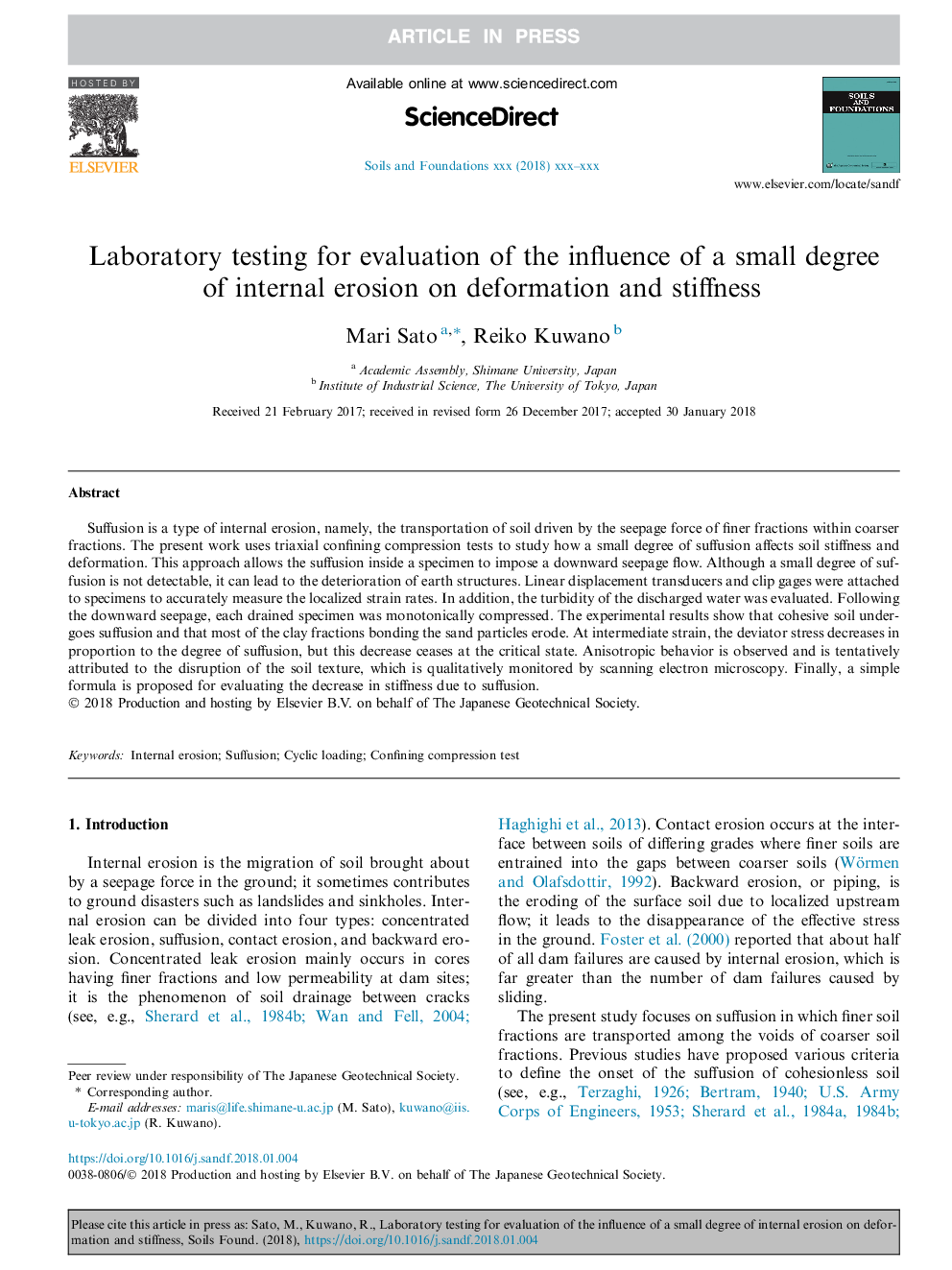| Article ID | Journal | Published Year | Pages | File Type |
|---|---|---|---|---|
| 6773678 | Soils and Foundations | 2018 | 16 Pages |
Abstract
Suffusion is a type of internal erosion, namely, the transportation of soil driven by the seepage force of finer fractions within coarser fractions. The present work uses triaxial confining compression tests to study how a small degree of suffusion affects soil stiffness and deformation. This approach allows the suffusion inside a specimen to impose a downward seepage flow. Although a small degree of suffusion is not detectable, it can lead to the deterioration of earth structures. Linear displacement transducers and clip gages were attached to specimens to accurately measure the localized strain rates. In addition, the turbidity of the discharged water was evaluated. Following the downward seepage, each drained specimen was monotonically compressed. The experimental results show that cohesive soil undergoes suffusion and that most of the clay fractions bonding the sand particles erode. At intermediate strain, the deviator stress decreases in proportion to the degree of suffusion, but this decrease ceases at the critical state. Anisotropic behavior is observed and is tentatively attributed to the disruption of the soil texture, which is qualitatively monitored by scanning electron microscopy. Finally, a simple formula is proposed for evaluating the decrease in stiffness due to suffusion.
Related Topics
Physical Sciences and Engineering
Earth and Planetary Sciences
Geotechnical Engineering and Engineering Geology
Authors
Mari Sato, Reiko Kuwano,
